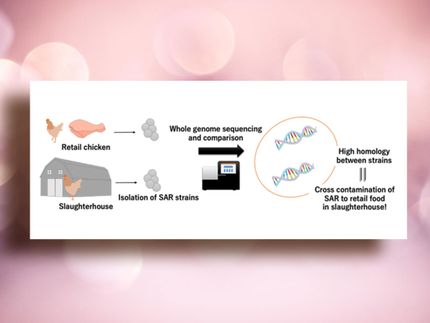Probably thousands of cases of meat allergy after tick bite
Advertisement
In the USA, more and more people are developing a meat allergy after being bitten by a certain type of tick. Between 2010 and 2022, more than 110,000 suspected cases of so-called alpha-gal syndrome (AGS) have been identified, the U.S. health authority CDC reported. In Europe and also in Germany, ticks increasingly carry a virus first detected years ago in China.
The U.S. authority CDC stressed, in the U.S. could possibly even be affected by the alpha-gal syndrome around 450,000 people.
The reason for this suspicion is that many healthcare workers and patients may not be aware of the disease, which is why it is often not tested for.
"Alpha-gal syndrome is an important spreading health problem," said CDC scientist Ann Carpenter.
Health care workers should be aware of it so they can appropriately screen patients, make diagnoses, provide care and also teach them how to prevent tick bites, she said.
The syndrome, according to the CDC, is believed to be triggered primarily by a particular species of tick common in the U.S. - the so-called Lone Star tick (Amblyomma americanum). Affected individuals are allergic to a specific sugar molecule that is found in most mammals and can be found in meat and meat products. Symptoms may include dizziness, diarrhea or rash. According to the Robert Koch Institute, there are no data on cases of alpha-gal syndrome in Germany.
In European ticks, however, the Alongshan virus (ALSV), which was discovered in China six years ago, is spreading. In the meantime, the pathogen has been found in ticks in Finland, France, Russia and Switzerland, according to the Center for Travel Medicine (CRM) based in Düsseldorf. There is also evidence in Germany.
Researchers at the Hannover University of Veterinary Medicine (Tiho) had shown evidence of ALSV transmission via ticks to wild animals in Lower Saxony, they reported in the journal Microorganisms. The team had examined blood samples from wild animals from the 2017 to 2019 hunting season.
The virus was also detected in the body and saliva of ticks collected from several locations in Lower Saxony. In a systematic study of ticks collected in Switzerland in 2021 and 2022, ALSV was found even more frequently than TBE viruses - those pathogens that cause early summer meningoencephalitis (TBE).
Severe illnesses beyond flu-like symptoms have not been associated with ALSV infection to date, the Center for Travel Medicine added.
The most common tick-borne disease in Germany is Lyme disease, against which an antibiotic helps in the early stages.
In addition, early summer meningoencephalitis is particularly widespread in southern and southwestern Germany. There is a vaccination against it./cah/cst/waw/DP/he (dpa)
Note: This article has been translated using a computer system without human intervention. LUMITOS offers these automatic translations to present a wider range of current news. Since this article has been translated with automatic translation, it is possible that it contains errors in vocabulary, syntax or grammar. The original article in German can be found here.






























































